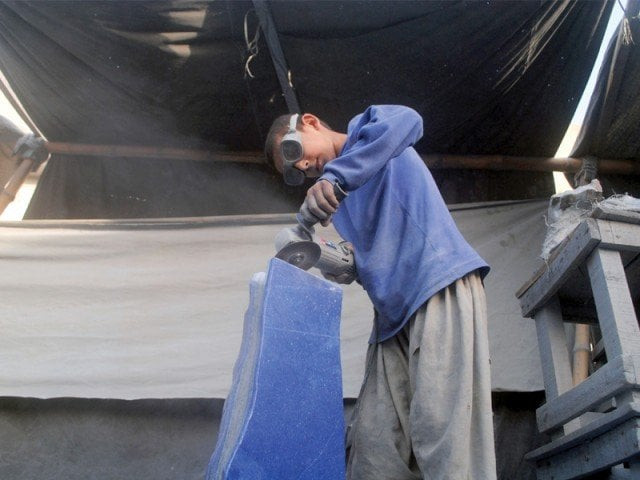Rights of informal workers
The plight of workers working in the informal sector in Pakistan is no hidden secret

The plight of workers working in the informal sector in Pakistan is no hidden secret. PHOTO: MUHAMMAD IQBAL/EXPRESS
While it is true that tracking down informal workers, registering them and then keeping track of the conditions they work in will not be an easy endeavour, that shouldn’t mean that the government allows the rights of these workers to be trampled upon with impunity. As it is, being informally employed means that workers are too scattered and disorganised to have their voices heard. The Home Based Women Workers Foundation told the Senate panel that there are some eight million workers working in the informal sector, and of these there are 1.2 million women who work from homes, but the formula of minimum wage is not applied on them and neither are they provided with basic healthcare by their employers nor do they have the right to form associations. The plight of informal workers must not be ignored. The government needs to set up mechanisms to monitor their plight and punish infringements.
Published in The Express Tribune, June 17th, 2016.
Like Opinion & Editorial on Facebook, follow @ETOpEd on Twitter to receive all updates on all our daily pieces.















COMMENTS
Comments are moderated and generally will be posted if they are on-topic and not abusive.
For more information, please see our Comments FAQ